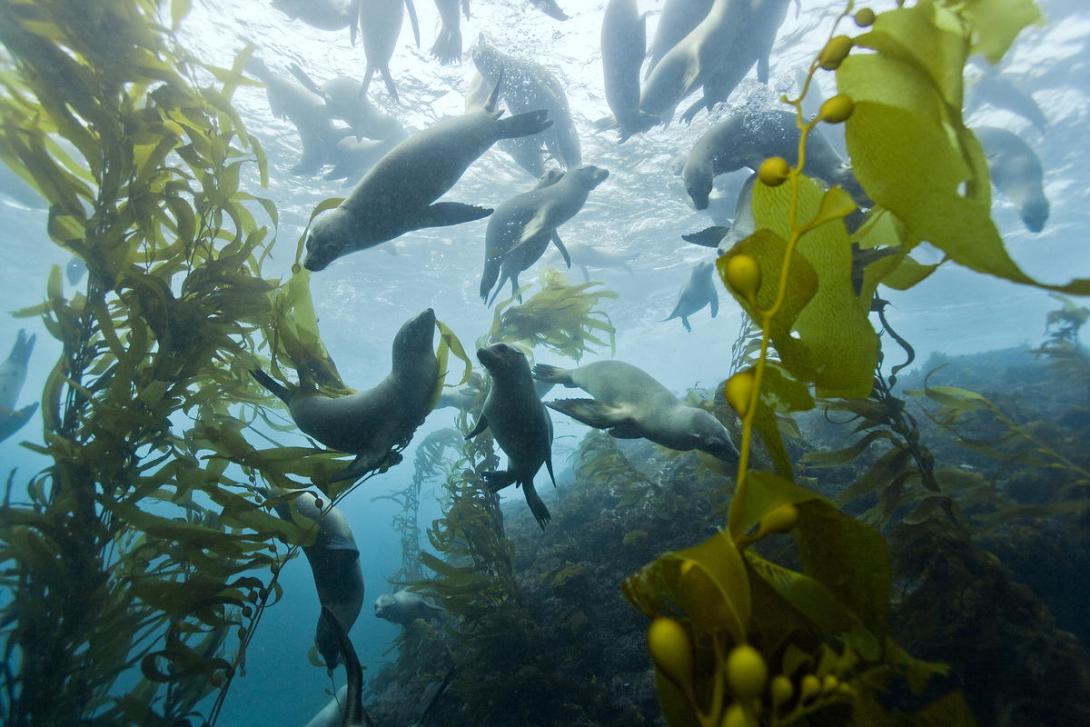Despite our ocean territory being 15 times larger than our landmass, New Zealand currently has less that one percent of its ocean areas protected.
The ocean matters to us
More than 50% of Kiwis live within 5km of the coast. And we love to fish, boat, swim, dive or just spend time by the sea.
Our ocean is home to creatures found nowhere else on earth.
But Te Moana is in trouble
Unsustainable fishing, plastic pollution and climate change are pushing fragile marine species and habitats to the brink of extinction. It's estimated that 22% of our marine mammals and 90% of our seabird species are threatened.
Add your name to show your support for '30x30' - having 30% of our ocean in Marine Protected Areas by 2030.
Our marine environment is vast and unique
New Zealand has one of the most unique and special marine environments on the planet.
Experts estimate that 80% of our wildlife could be in the ocean, with our waters home to creatures found nowhere else – including the world’s rarest sea lion, penguin, dolphin, whale, and albatross. We have more species of seabird than anywhere else on earth.
Our ocean is exceptional, but it is being negatively impacted by human activity. Heavily utilised areas like the Hauraki Gulf are more vulnerable to these impacts and are on the verge of ecological collapse.
If we don’t act now, species like the Antipodean Albatross or Maūi dolphin could be wiped out forever.
Our ocean and the life within are taonga that need protecting. Marine protected areas are an important way we can protect these habitats and species from harm.
Why MPA matter
Marine Protected Areas (MPA) are places where human activities like fishing or mining are limited. They are essential to protect our marine life.
MPA protect and restore ecosystems by allowing fish populations to rebuild and recover from overfishing. A healthy ecosystem leads to more resilience to other threats, such as pollution and invasive species. MPAs also help build resilience to climate change by reducing carbon emissions and increasing carbon sequestration.
More MPA in New Zealand would not only benefit our environment, but also benefit the communities and industries that rely on the ocean for their livelihoods. Aotearoa’s unique marine environment and abundance of biodiversity is one of the things that draws people to New Zealand, and a healthy ocean is vital for New Zealand’s our tourism sector.
They increase food security, job security and financial security for people. MPAs can also benefit the commercial and recreational fishing sector because by allowing fish to thrive in protected areas, this can create a ‘spill over’ effect where fish from inside the protected areas can help build fish stocks outside the protected areas.
We’ve only got six years before 2030 and about 29% of our ocean territory to protect if we are to achieve our 30x30 goal.
Make a donation to help get 30% of the ocean protected by 2030
What is 30x30?
The Kunming-Montreal Global Biodiversity Framework (GBF) was adopted in December 2022. It includes the 30x30 target (Target 3) which commits the nations of the world to protect and conserve 30% of the world’s oceans by 2030.
Target 3 states:
“Ensure and enable that by 2030 at least 30 percent of terrestrial, inland water, and of coastal and marine areas, especially areas of particular importance for biodiversity and ecosystem functions and services, are effectively conserved and managed through ecologically representative, well-connected and equitably governed systems of protected areas and other effective area-based conservation measures, recognizing indigenous and traditional territories, where applicable, and integrated into wider landscapes, seascapes and the ocean, while ensuring that any sustainable use, where appropriate in such areas, is fully consistent with conservation outcomes, recognising and respecting the rights of indigenous peoples and local communities, including over their traditional territories.”
Protect the Hauraki Gulf
Overfishing, habitat loss, pollution, sedimentation, and the effects of poorly planned urban development have led to a 57 percent decline in key fish stocks, a 67 percent decline in seabirds, and a 97 percent decline in whales and dolphins in the Gulf. Scallop and crayfish populations are functionally extinct in some areas.
The creation of new marine protected areas in the Hauraki Gulf is essential to protecting and restoring its environment, as well as benefitting the communities and industries that rely on the Gulf for their livelihoods.
The Hauraki Gulf Marine Protection Bill seeks to establish 2 marine reserves, 5 seafloor protection areas, and 12 high protection areas in the Hauraki Gulf, acknowledging customary rights within seafloor protection areas and high protection areas.
In June, the Environment Select Committee agreed unanimously the Bill should be taken forward with no substantive changes to the high protection areas.
Now, it is all at risk because the Government has taken the decision to amend the Bill to allow a type of fishing known as ring-netting to take place in the new ‘high protection areas’ – zones which had been explicitly designed to exclude both commercial and recreational fishing and provide a safe haven for marine life to recover.
Use our email template to directly send messages to Prime Minister Christopher Luxon, Minister of Conservation Tama Potaka, and Auckland-based National MPs, urging them to reverse this reckless decision.
